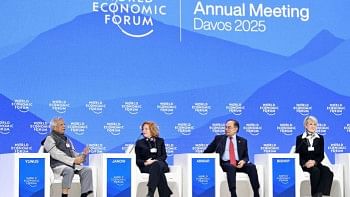The India-Pakistan crisis: What we know

A string of violent escalations have pushed India and Pakistan to the brink of conflict, sparking global alarm and calls for restraint between the nuclear-armed neighbours.
Here is an explanation of the events so far, and the possible next steps:
What triggered the crisis?
On February 14, 40 paramilitaries were killed in a suicide bomb attack in the Indian-administered part of Kashmir, igniting outrage. It was the deadliest militant attack there in three decades, and was claimed by Pakistan-based group Jaish-e-Mohammed (JeM).
Kashmir has been a major flashpoint since the end of British rule in the subcontinent in 1947. A ceasefire line divides it between India and Pakistan, but both claim the Himalayan region in its entirety.
Kashmir has seen hostilities during three India-Pakistan wars, as well as a limited conflict in 1999.
India has 500,000 troops stationed in the region to counter an armed insurgency by separatists seeking either independence or a merger with Pakistan.
How did India react?
Prime Minister Narendra Modi threatened a "jaw-breaking" response after the bombing. New Delhi demanded action from Islamabad, which it accuses of using militant groups as proxies to fuel unrest in Kashmir and carry out terror attacks in India.
On February 26, Indian warplanes crossed the Kashmir ceasefire line into Pakistani airspace, dropping bombs on what New Delhi described as a large JeM camp where militants were preparing to stage more attacks in India.
Islamabad confirmed the incursion and the dropping of payloads in undisputed Pakistani territory, a few kilometres outside the part of Kashmir it controls.
But it said New Delhi's claim of killing scores of militants was "self-serving, reckless and fictitious".
What was Pakistan's response?
An infuriated Islamabad vowed retaliation after the raid, India's first use of air power on Pakistani soil since the two fought a war in 1971 -- when neither had nuclear weapons.
On February 27, Pakistani jets flew across the Kashmir ceasefire line in what Islamabad described as a show of strength, hitting open spaces after locking on to military targets.
But there was a dramatic escalation when the Pakistani planes were chased by Indian fighters. In the ensuing fight, both sides claimed to have shot down each other's warplanes.
Pakistan said it downed two Indian jets, and detained one of their pilots. New Delhi confirmed the loss of one of its planes, and said a Pakistani jet was shot down -- which Islamabad denied. India has demanded the "immediate and safe return" of the pilot.
As tensions reached a level not seen in years, Pakistan closed its airspace completely.
What happens next?
The crisis has sparked alarm across the world, with major powers urging the two nuclear-armed rivals to act with restraint.
Both sides have sought to play down the threat of war -- Pakistani Prime Minister Imran Khan and Indian foreign minister Sushma Swaraj have said they do not want to escalate further.
A lot rests on how India reacts to the Pakistani retaliation and the capture of its pilot, analysts said.
"If India were to... retaliate again, that could really take things to another level," Michael Kugelman of the Wilson Center told Bloomberg TV.
But the fact that Pakistan has one of its pilots "may limit its options and may make it a bit more cautious".
And given limited communication between the two, "there is increased scope for misunderstanding and miscalculation", wrote Rahul Roy-Chaudhury of the International Institute for Strategic Studies.
While there is international pressure to avoid a plunge into full-blown war, there may be pressure within India to not let Pakistan have the last word.
"India is led by a government that's very conservative, and has been very tough on Pakistan. There's an election coming up in a few weeks in India... I find it hard to believe that India would be ready to de-escalate," Roy-Chaudhury said.
"I don't know if we've seen the last of these fireworks on the sub-continent, unfortunately."


 For all latest news, follow The Daily Star's Google News channel.
For all latest news, follow The Daily Star's Google News channel. 




Comments